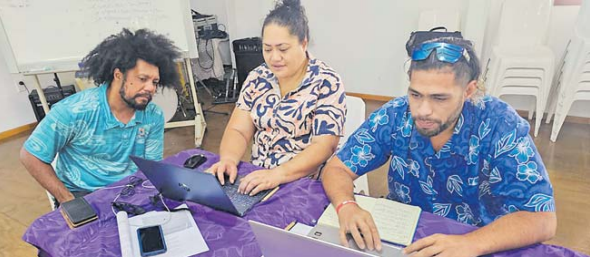Background and problem
THE levy/grant scheme, previously known as the Training Productivity Authority of Fiji (TPAF) Levy Grant Scheme, and now known as the FNU Levy Grant Scheme, originated in Brazil as a sheltered system for mainly front-line technical and vocational workers. With the 1 per cent of payroll in mandatory contribution, the employers, in effect are contributing towards the cost of the training of their employees.
The Fiji National Training Council (FNTC), which later became TPAF and is now the FNU’s National Training and Productivity Centre, was set up in 1973 to manage this scheme in Fiji. When the system was first introduced, the FNTC was not a training provider, and as such, the agency was in ideal position to be the regulator of in-service productivity training and apprenticeship. Over the years, it evolved into a training provider, and accordingly a conflict of interest arose. With TPAF now merged with the Fiji National University, this conflict is further exacerbated, as the institution is a fully-fledged training provider.
The Fiji National Training Levy Order 1988 clearly specified that the collected levy was to be used primarily for in-service training of employees of levy payers, managing apprenticeship schemes, trade testing, productivity promotion and education and training in the national interest. The redistribution through the budget now means that vast majority of the funds are no longer available for employers for training purpose. Thus, creating the disincentive for productivity training.
The 2010 FNU amendment decree under section 35A (2) (a) and (d) clears state the function of National Training and Productivity Centre (NTPC) formerly known as TPAF are regulator than a training provider.
Therefore, one can easily argue based on law that FNU should not be a training provider but a regulator. However, the institution, by and large, is the largest national training provider and therefore it cannot regulate grants and provide trainings at the same time. A regulator is independent of the provider in any functioning democracy. For reasons cited above, and for greater transparency and accountability, and in accordance with the principles of good governance, the grant levy scheme should be restructured and transferred to an agency that is not a training provider. FNU was given the role and they have managed, but for national building through productivity training, an immediate change is needed for the independence of function. No legal interpretation can argue that regulatory function on 1 per cent levy is currently independent of FNU.
Solutions
There is an existing outright employer support to immediately do the independent review of relevant legislation and swiftly have a solution. Fiji Commerce and Employers Federation has been loud on this, together with other industry professional associations and employer bodies. There has been an assurance from the Government to consider. The government through the overwhelming support of employers can take in two prone approaches.
Make administration of 1 per cent employer levy independent of a training provider and gradually, but preferred swiftly, to shift allocation of Accident Compensation and Medical Insurance back to the training. Ministry of Finance will be tasked to look for money considering the broader national human capital development interest.
The Government can institute an independent review for consultation on the current arrangement and provide recommendations to the Government. Alternatively, the problem and solution are common knowledge and a cabinet decision, and legislative amendment via Parliament is needed.
The Government can shift the regulatory function to existing institutions like TSLS or HECF or keep it within Ministry of Employment, with demarcated bilateral powers to both, the Minister of Employment and Minister of Education, to best align and co-ordinate education, training and employment. An option can be to create a new statutory organisation within joint ambits of Ministry of Employment and Ministry of Education. The independent agency will regulate collection and redistribution of levy, administer national apprentice programmes and be responsible for industry quality and business excellence awards.
This leaves FNU to greater focus and expand on its core mandate of training, teaching and research. They are and will be the largest TVET provider of the country and employers go to provider with wide options of training programmes for most sectors of the economy.
An average of $23m to $27m is collected annually as employer levy and having 10 per cent for training is crucifixion in achieving intended outcomes. With push and pull factor trend in global labour mobility, Fiji is evidently losing human capital. Lack of quality and continuous in-service training is one of the push factors. Therefore, continuous up-skilling and re-skilling to meet evolving and sophisticated industry demands undoubtedly warrants unwavering strides now than before towards in-service trainings. Improved productivity will enable improved bottom line for companies which can, if properly mediated by Government, can translate in enhanced wage and salary benefits, hence driving economic well-being of workers in the country.
The time is ticking for the government for this visibly known issue for a resolve unless this becomes part of the manifesto of increasing number of new political parties.
DR HASMUKH LAL is the former CEO of Pacific Technical and Further Education at USP and in the recent past, the CEO of Tertiary Scholarships and Loans Service. He is now the founder and managing director of Oceania Education and Technology Solutions. The views are his and not of this newspaper. He can be contacted on hlal@oets.com.fj.



